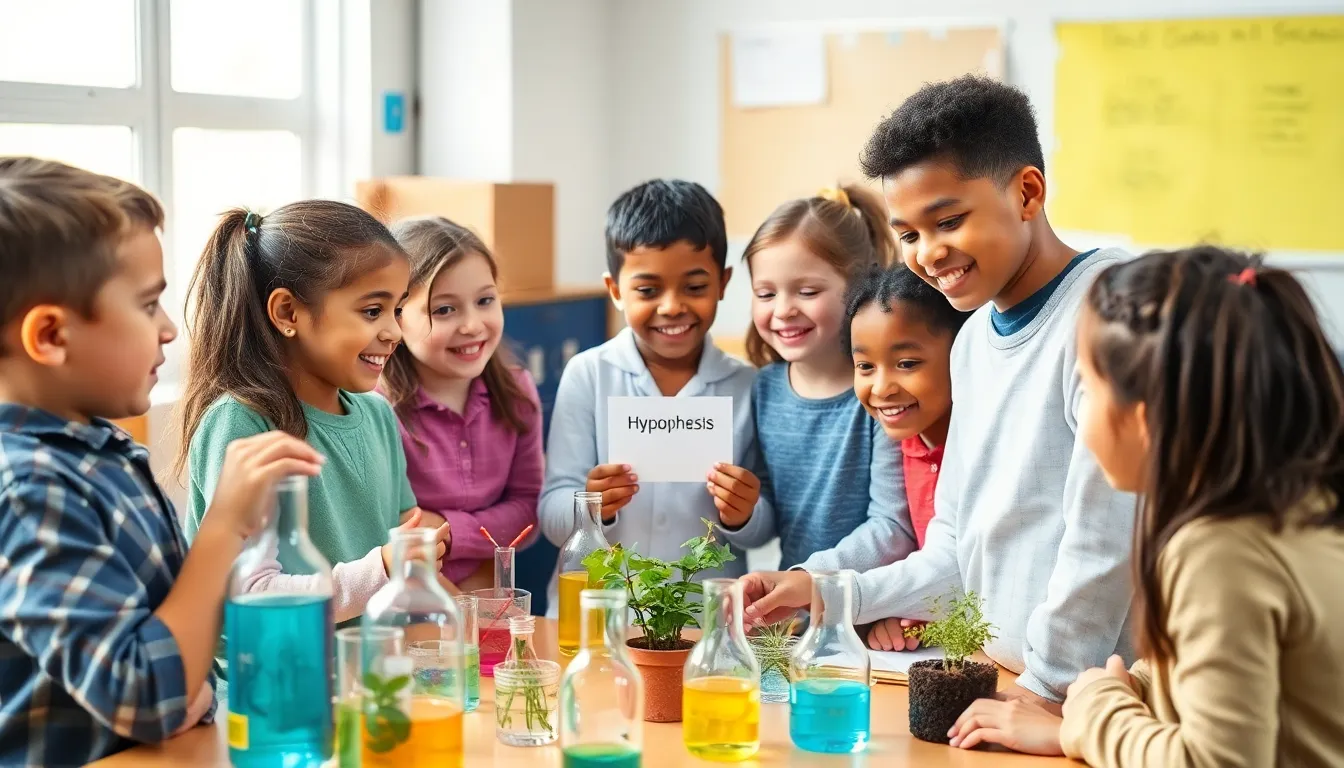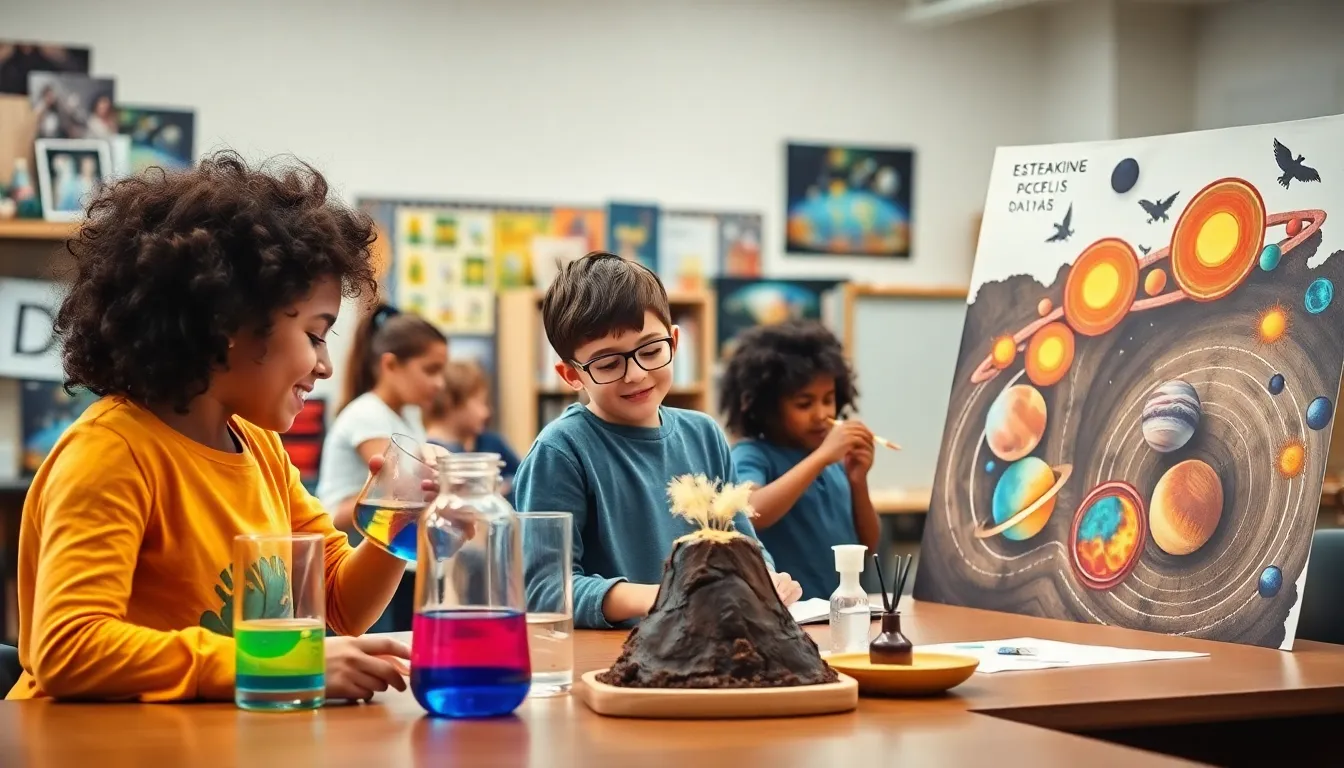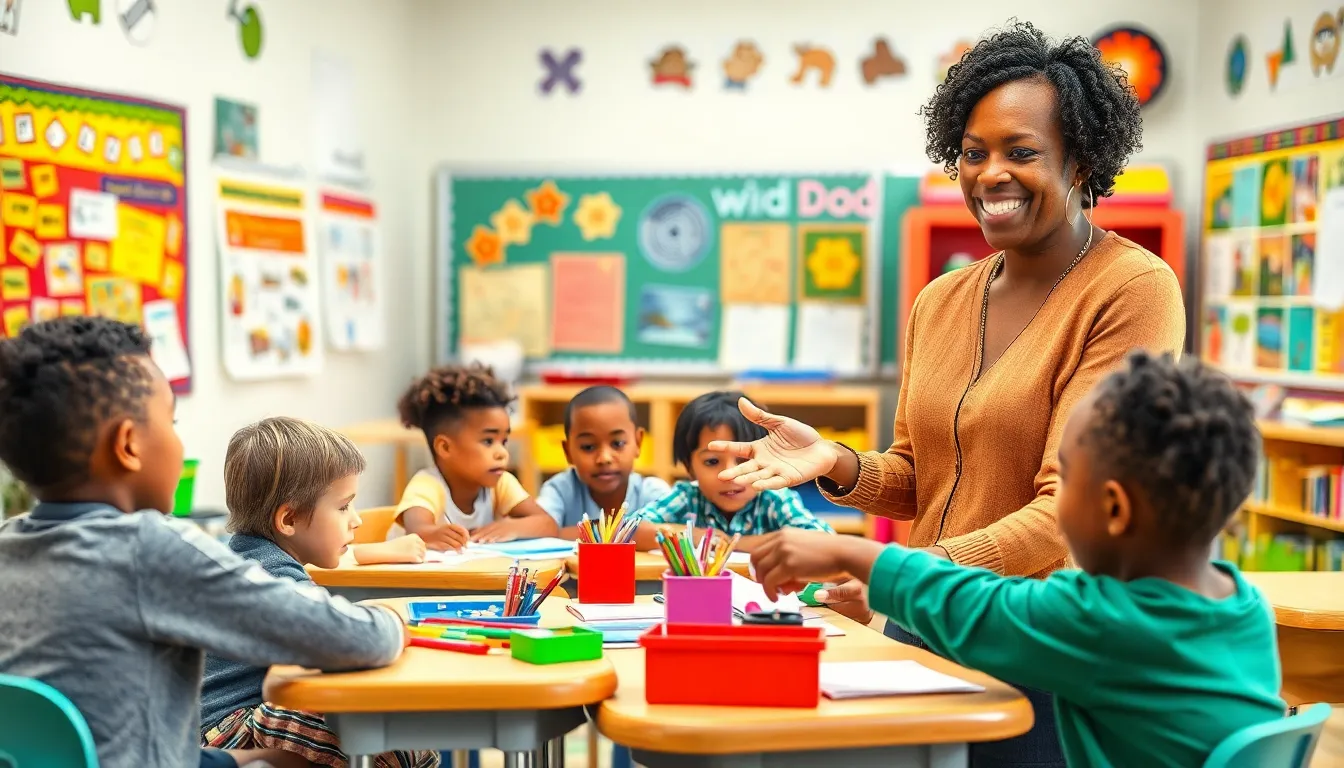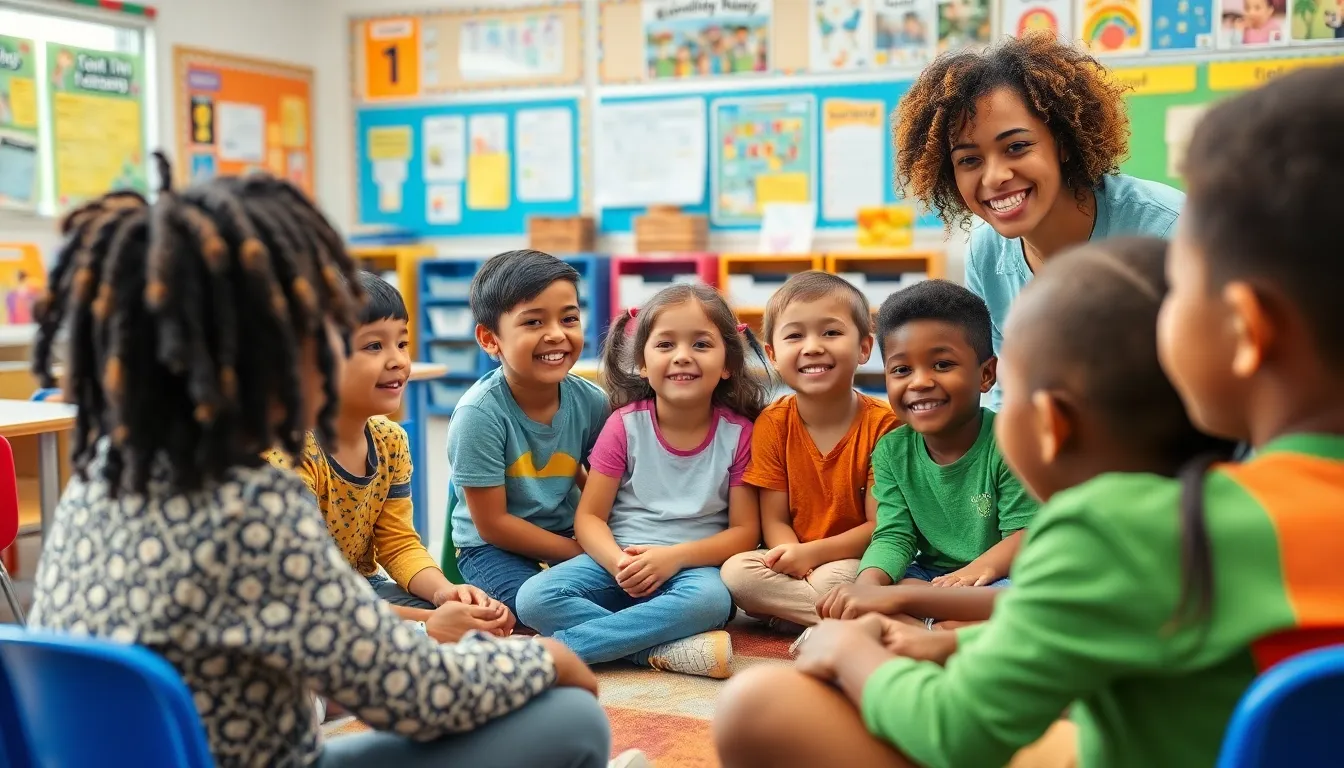Fourth grade is a magical time when kids transform from wide-eyed learners into budding scientists, artists, and historians. It’s the perfect stage for projects that ignite creativity and curiosity. Whether they’re building a volcano that erupts with soda or crafting a timeline of ancient civilizations, these projects not only make learning fun but also help kids grasp essential concepts in a hands-on way.
Imagine the joy on their faces when they present their work to classmates, armed with facts and a sprinkle of humor. These projects are more than just assignments; they’re opportunities for kids to showcase their unique personalities and interests. So, let’s dive into some exciting fourth grade project ideas that will make parents proud and teachers smile. After all, who wouldn’t want to see their child become the next great inventor or artist, one glue stick at a time?
Table of Contents
ToggleOverview of Fourth Grade Projects
Fourth grade projects provide an essential platform for students to explore their creativity and curiosity. Engaging in hands-on activities encourages a deeper comprehension of academic subjects. Popular projects include building models, conducting experiments, and crafting presentations, which facilitate both learning and expression.
Teachers often assign projects that align with core subjects like science, history, and art. For instance, creating a model of the solar system showcases understanding of planetary science. Conducting a simple chemistry experiment highlights the scientific method while students enjoy discovering reactions.
Art projects serve as a vital avenue for self-expression. Students may create collages, paintings, or sculptures, merging artistic skills with historical themes. A timeline project allows students to visualize and narrate significant events in chronological order, strengthening their narrative abilities.
Parents often appreciate these projects for fostering collaboration and communication between family members. Assisting children with research or construction deepens family bonds and shared learning experiences. Overall, the combination of academic rigor and creativity in fourth grade projects cultivates essential skills, preparing students for future academic challenges.
Resources available for project ideas include educational websites, libraries, and classroom materials. Researching current events or historical figures adds relevance to projects, sparking interest. Teachers encourage students to brainstorm and select topics that resonate with them, enhancing motivation and engagement.
Types of Fourth Grade Projects

Fourth-grade projects come in various forms, allowing students to explore different subjects creatively. Each type plays a crucial role in deepening understanding and enhancing skills.
Science Fair Projects
Science fair projects engage students in the scientific method. Students might choose topics like plant growth, simple machines, or basic chemistry experiments. They conduct research, form hypotheses, and present their findings. These projects help develop critical thinking and problem-solving skills. Engaging in hands-on experiments also makes abstract concepts tangible. Families often assist children in gathering materials or conducting experiments, fostering teamwork.
Art and Craft Projects
Art and craft projects encourage self-expression and creativity. Students create collages, paintings, or sculptures inspired by their interests. These activities allow for exploration of different mediums such as paint, clay, or recycled materials. Presenting finished artwork boosts confidence and public speaking skills. Teachers often integrate art projects into core subjects like history or science, making learning multi-faceted. Collaborating with peers on these projects enhances communication and teamwork.
Historical Research Projects
Historical research projects immerse students in the past. Topics can range from ancient civilizations to significant events in American history. Students gather information, create timelines, or develop presentations highlighting their findings. These projects improve research skills and promote critical thinking about historical significance. Many students also enjoy creating posters or digital presentations, making learning interactive. Family members frequently participate by sharing stories or resources, enriching the overall experience.
Benefits of Fourth Grade Projects
Fourth grade projects offer numerous benefits that enhance students’ learning experiences. They cultivate essential skills and promote creativity among learners.
Skill Development
Project-based learning enables students to develop critical skills that are vital for academic success. Engaging in hands-on activities fosters problem-solving abilities, as students encounter real-world challenges. Collaboration becomes crucial during group projects, allowing learners to communicate effectively and share ideas. Research skills improve when students gather information on their topics, teaching them how to assess credible sources. Time management skills also come into play, as they balance project timelines with other academic commitments. Students gain confidence by presenting their work, honing public speaking abilities that are essential in future educational endeavors.
Encouraging Creativity
Creativity flourishes through fourth-grade projects, allowing students to express their individuality. Hands-on activities encourage imaginative thinking, whether they’re designing a model or crafting an artwork. Exploring various mediums enhances their artistic expression, leading to unique creations. Students also discover innovative solutions as they experiment with different approaches to complete tasks. Encouraging personal interests ensures that learners remain engaged and passionate about their projects. As a result, they develop a deeper appreciation for the subjects being studied while embracing creative problem-solving strategies.
Tips for Successful Fourth Grade Projects
Successful fourth grade projects require careful planning and dedication. Focus on these strategies to enhance the project experience.
Planning and Organization
Start by selecting a project that ignites passion. Create a timeline with specific deadlines to keep students focused. Establish lists of materials needed, ensuring everything is ready before starting. Break tasks into smaller steps, allowing manageable completion of project sections. Using a planner or checklist can track progress and keep organized.
Utilize feedback throughout the process. Revisit plans and adjust as necessary to stay on target. Regularly reviewing progress can provide motivation and direction. Finally, embrace the learning journey. Encourage students to reflect on their experiences, reinforcing that every step adds value to their education.
Collaboration with Parents
Engaging parents actively contributes to project success. Discuss project ideas together and include them in the planning process. Share expectations and encourage open communication throughout. Parents can assist in gathering materials or provide constructive feedback on kids’ work.
Set aside time for parent-child teamwork sessions. Working together fosters bonding and encourages collaboration. Discuss project goals to ensure alignment and understanding. Parents can also help students practice presentation techniques, boosting confidence before the big day. Celebrate each achievement as a family to create lasting memories.
Fourth grade projects play a crucial role in shaping young minds. They not only ignite curiosity but also foster essential skills that students will carry with them throughout their education. By engaging in hands-on activities, children develop a deeper understanding of various subjects while expressing their creativity.
The collaboration between parents and children during these projects strengthens family bonds and enhances the learning experience. With the right resources and support, students can explore their interests and showcase their unique talents. Ultimately, fourth grade projects serve as a foundation for future academic success, encouraging imaginative thinking and problem-solving abilities that will benefit them for years to come.






